- Home
- Diana Wynne Jones
The Homeward Bounders Page 6
The Homeward Bounders Read online
Page 6
“Mine’s Jamie,” I said, trying to look at her in the fierce sun. She must have a face, I decided, on the front of her head, in the usual way. I could just see the pointed brown tip of a nose poking out among the black hair there. But her hair really did seem to hang down the same way all round her head. She was dressed in black trousers and a black sweater and had black shoes with thick bouncy soles on her feet. Now the people in this world were a peculiar lot, but they always wore armor, and had their hair scraped back inside a helmet with a mirror-attachment so that they could see what was coming to attack from behind. And they spoke a croaking, gabbling language. She had spoken to me in English. “You can’t come from here,” I said. “You’re speaking English.”
“Of course,” she said. “I saw you were a stranger and I spoke to you in the language of the wider times.”
We began to shuffle towards the Boundary as she said this. You find you really have to go when they call.
“And you’re a Homeward Bounder too?” I said, shuffling.
The tip of her nose stuck up disgustedly. “Is that what you call yourself? I’m an exile, condemned by the mouth of Uquar. They turned me out of the House of Uquar, and of course I got stoned. I’m angry.”
She was lucky only to have been stoned, I thought. My eyes were watering in the sun, but I could see that her black clothes were splashed with sandy white mud all over. In some places there were holes, and she was bleeding a bit where the holes came. It looked as if she was telling the truth. “Why were you turned out?” I said.
“Because of Them,” she said, with immense hatred.
I knew she was telling the truth. Only somebody new to the Bounds would talk about Them like that. “They don’t like you to talk about Them,” I said.
“It’s what I like, not what They like that matters,” she said. “I’m not Their slave! I’m going freely into honorable exile. So there!”
“Why?” I said.
“Because of my gift,” she said, and went stalking up the hill to the Boundary.
I suppose I should have let her go. She wasn’t exactly friendly. But it narked me to see her going so fast while I floundered, and I knew that as soon as we got to the Boundary, we’d both be twitched off different ways and I’d never see her again. So I floundered hard and got to the top of the hill at the same time as she did. It was only a small Boundary. And it was typical of Helen’s beastly world that it was marked out with bones.
They were great big bones, rib-bones like the skeletons of ships and leg-bones as high as lamp posts. I’d met one of the animals they came from three days before. I wasn’t sure if it was a dragon or not, but it looked like one and it clearly thought I was good to eat. I only got away by hiding down the chimney of one of the fortresses. I don’t think the dragon breathed fire, but it sniffed at the chimney for a good hour, until I was almost roasted from the fire down below.
“On holy days we bring a bone and plant it here,” Helen explained.
I made a grunt and pushed past her to go inside the ring of bones. The white sand inside was criss-crossed with the black shadows of the bones. It took me an instant to see that the sand among the shadows was squiggling. I stopped at once and pretended to be getting the sand out of my shoes. It was not imagination, or the heat. The place was alive with snakes.
Helen came up beside me. I could feel she was disgusted at my cowardice. She clapped her hands, briskly and loudly. “Go away!” she said.
The sand among the shadows sort of seethed, and the snakes went. I could see them pouring out between the bones on the other side of the circle. “Thanks,” I said. “Is that your gift?”
“Great Uquar, no!” she said. “Those were only snakes.”
“I know,” I said. “I didn’t care to be stung.”
“They don’t sting. They bite,” she said. “Shall I show you my gift?”
“If you want,” I said, and I stepped into the circle of bones, meaning to be off elsewhere next second.
“As a great favor,” she said. “Look.”
When someone says “Look,” you do. I looked in spite of the Bounds calling away. My eyes were getting used to the glare by then. Helen was rolling up the right sleeve of her black sweater. Her skin was a lot browner than mine, but her arm was an ordinary arm, bruised in one place and scratched in another.
“Snap!” I said. “Only mine’s pinker.”
A laugh came from behind Helen’s sheet of black hair. The arm went gray. It started at Helen’s fingers and grew gray the whole way up, and with every inch or so of grayness it grew a deep wrinkle, until it was gray and wrinkled right up to her shoulder. The skin of it seemed to get thick and dry, with just a few long black hairs growing on it. Where Helen’s hand had been were a couple of fleshy points, with two pinker holes deep inside. This gray arm swung and curled up. I could see it hadn’t any bone in it any longer.
I said, “Eeeurgh!” and backed away. As I did, the gray arm shot out suddenly to twice its length, almost straightening out all its wrinkles, and wrapped itself round my neck. It felt warm and leathery. “Stop that!” I said. I backed away and tried to untwist the warm gray snake from my neck, but it was unbelievably strong. It clung and clung. Helen thought it was ever so funny. She threw back her head, so that I almost saw face behind the hair, and laughed and laughed at me, and went on hanging on. I went on going backwards, pulling at the gray arm and shouting at her to stop it, and pulling Helen along with me because she wouldn’t let go.
Then we got to the place where the twitch came. And we both went together. I was so surprised that I stopped shouting. There we were, both of us, in much mistier sunlight, which made me feel almost blind for a moment. Helen had difficulty seeing too. She had one hand up, parting her front hair a bit, and there was a bright black eye showing. She was watching her gray arm turn brown and smooth again, from the shoulder downwards. I recognized it as it began to vanish.
“That’s an elephant’s trunk!” I said. “How did you do that?”
“That’s my gift,” she said. “I can just do it. Where are we?”
“In another world,” I said. I looked round while I was tipping the sand out of my shoes and began to feel regretful. We were not going to be here long, and it looked really inviting. We were in an open space in a tropical sort of forest. Everything was unbelievably bright and fruitful. The green, green trees were hung with bunches of fruit and draped with creepers growing blue and white flowers as big as plates. The only reason I didn’t find this hot sun dazzling was because I’d just been in the desert in Helen’s world. It was the kind of sun that brings scents and colors out. The place smelled wonderful. It was quiet, except for one or two peaceful rustlings. I took that to be squirrels or monkeys. There weren’t any birds singing, but that is not the kind of thing you notice after Helen’s world. “This is a jungle,” I said to Helen.
“I can see that,” she said. “What do we do? Can we eat any of that fruit?”
“It’s better not to try,” I said.
The tip of the nose came out of the black hair and pointed haughtily at me. “We can’t die. I was told that.”
“Then you were lucky. You were told more than I was,” I said. “But I’ve eaten things that made me sorry I couldn’t die, before I learned to be careful.”
“Then say what we do,” said the haughty tip of nose.
I was quite annoyed by then. She was so superior. Who was she, just new to the Bounds, to behave this way and play a silly trick on me? I had ten times her experience. I set out to show her. “The best thing,” I said patronizingly, “is not to eat until you see what the natives are eating. We’re not going to be here long—”
“I can tell that,” she snapped.
“—So we needn’t eat at all,” I said. I was mad. “Yes, you’ll find you get a feeling about how long you’re going to be in a place. You’re coming on very nicely. The next thing to do is to go and look for any marks that other Homeward Bounders have left. There’s a sort of path
over there. The signs should be in a tree near it.”
I led the way loftily over to a bushy sort of opening at the edge of the clearing. I looked knowingly up and around. There was a sign. It was slashed into the trunk of a tree that looked like a huge fern. And—this would have to happen!—it was one I didn’t know.
“There it is,” I said, pointing to it, trying to think what I should say next. “It’s a very rare sign, that is.”
Helen’s nose pointed up to it. “You don’t know what it means.”
“Yes, I do,” I said. “It means VERY PLEASANT WORLD. Those are very rare.”
“Yes,” she said. “Then what?”
“We go and look for some natives,” I said, “but carefully, not to alarm them. I should think they’d be rather primitive in a place like this.”
We set off down the path. It was like a green tunnel, with fruit and huge flowers hanging down and brushing our heads.
“Suppose these natives of yours speak a different language,” Helen said. “What do we do?”
“Learn it,” I said gloomily. “But don’t worry. I know hundreds of languages by now. An awful lot of them are quite alike. You let me do the talking and we’ll be all right.”
We went on a while, and then Helen seemed to decide to pick my brains. She said, “These signs you people with the stupid name have for one another—what are the commonest?”
“Warnings mostly,” I said. “Things like SLAVERS OPERATE HERE or POLICE TAKE BRIBES or DON’T OFFEND THE PRIESTS or UNFRIENDLY. Yours had OUCH! which just about sums it up, to my mind.”
“There’s no need to be rude,” she said. “It’s my Home. I shall go back there before long, you’ll see.” That made me smile. It was just what I’d thought. “What’s the most uncommon sign?” she said. “That one back there?”
I thought it must be, since I had never seen it before. “Not quite,” I said, so as to seem to know best. “The one I was told was most uncommon is YOU CAN TELL THEM YOU’RE A HOMEWARD BOUNDER.”
“Why?” she said.
“Because you can’t,” I said. “They make sure people don’t believe you.”
“So then the sign never happens!” she said scornfully.
“Yes it does,” I said. “It was in the list I was given. It must happen somewhere.”
“Of course it must,” Helen said pityingly. She was like that. She’d say first one thing, and then contradict it with the opposite, and make it seem that it was you who were wrong. “The wider times have every possibility in them, so there must be a traverse where you can admit to your exile. That is the logic of Uquar—”
“What kind of talk is that?” I said.
She wasn’t listening. “Uquar,” she said furiously, “is an utter cheat! I don’t think he exists!”
“Who is he anyway?” I was saying, when we came to the bushy edge of the jungle. There was a man standing in a bush at the side of the path, bowing and smiling at us. He didn’t look uncivilized. He was clean-shaven and wearing a neat whitish shirt and trousers, and the smile on his face was a polite, social sort of smile. He looked so harmless that I turned to Helen and said loftily, “Let me handle this.” I bowed to the man. “Good afternoon, my friend.”
He answered in a language I had never heard before. “Oomera-woomera-woomera,” he went.
I think my face looked pretty funny. Snorting noises came from behind Helen’s hair. “It doesn’t matter,” I told her. “We make signs.”
The man made the signs. He bowed and stretched out one hand. He was saying, “Will you come this way, sir?” like the waiters in a restaurant where I once worked. So I nodded and Helen jerked her head. She always nodded in a sideways jerk that looked as if it meant No. It took some getting used to. But the man seemed to understand. He was very pleased. He ushered us politely along a road, between fields. There were more neatly clothed men and some boys working in the fields with long hoes, but they downed tools when they saw us and came hurrying along with us, beaming and going “Oomera-woomera-woomera” too. It was like being royalty, except that it was friendlier. I happened to look round, and there were more neat men hopping out of the jungle and rushing after us with glad “oomera-woomeras.”
Beyond the fields, we came to the village. That was neat and civilized too. All the houses were square and painted white, with pretty, decorated trellises up the fronts, and shiny brass pots standing by their neatly painted front doors. They were built round three sides of a square, and at the back of the square was a bigger white building with bigger trellises, which seemed to be the village hall. They led us to this hall across the square, through the friendliest welcome I’ve ever had in my life. The girls and women joined in here, beaming and smiling and clattering the rows and rows of turquoise beads they wore over their long whitish dresses. They were all rather gushing types, these women. One came up to Helen, with her arms stretched out, cooing “oomera-woomera,” and put her hands out to part the hair in front of Helen’s face.
The piece of Helen’s face I saw looked as if it were going to bite. She jumped back and shouted, “Don’t do that!”
I’ve been on numbers of worlds where people keep their faces hidden. I wasn’t sure why Helen did, unless it was this Haras-uquara thing she was, and I’d never seen anyone use quite Helen’s method before, but I always think you should respect customs. “Oomera-woomera,” I said to the surprised woman. “You mustn’t do that. Her face is sacred.” The woman nodded and backed away, making so-sorry signs.
I thought Helen should have been grateful, but she said, “There’s no need for you to be rude too!”
She was in a very bad temper after that—if you can put it that way, when she hadn’t been in a good one yet. We were taken to seats on piles of cushions at one end of the hall and we were given a feast. We were guests of honor with a vengeance. I only had to look at any of the food they brought for it to be heaped into the brass pot they gave me as a plate. Everyone smiled and cheered and oomera’d and nodded, and more and more food came in: smoking brass buckets of bean hash, piles of rice, bits of stuff wrapped in leaves with hot sauce poured on top, pancakes and bread-cakes and fruity savory pies. And twenty kinds of salad. And piles of every kind of fruit I’d seen in the jungle. It was all delicious. The only drawback was that it was all vegetarian stuff. I do like a bit of meat myself.
Helen hardly touched it. She sat with her head hanging so that even the tip of her nose was invisible and behaved as if her face was too sacred to put food in. I think what had happened was that it had hit her for the first time what being a Homeward Bounder meant, but I don’t know. I never knew what Helen was thinking.
“Do eat,” I said. “You’ll offend them. You’re guest of honor.”
“You eat for me,” she said. “You stuff. I don’t want any. I don’t like this place. I wish I could go Home.”
So I ate away, trying to make up for Helen. After a bit, they cleared all the food away and brought hot drinks. I was glad. I was too full to be happy by then.
You can imagine my dismay when, after the drinks, out came the brass pots again, and in came a whole lot more food. This course was a mass of things on sticks—all vegetables—and corn on the cob and suchlike. Stacks of it. And I had to have something of each. They insisted on it. That’s the worst of not knowing the customs. You don’t know how to pace yourself. I’d already eaten too much anyway.
“I remember my mother going on about eating for two,” I said to Helen, “before my sister Elsie was born. I’d no idea it was such hard work!”
“You’re eating like a pig for the slaughter!” said the voice under the hair.
“I am not! I’m being polite,” I said.
Then they took the things on sticks away and brought in puddings. Piles of puddings. I was nearly bursting by then. But I went on doggedly. You have to respect customs. There was no pleasure in it. I was afraid I was going to be sick. I had to refuse two of the rice puddings. I’ve never been so glad to see a meal over as I was when t
hat one was finished. Everyone got up at last. I got up too, feeling like a vast, fat cushion with little tiny arms and legs at the corners. I could hardly walk to the place where we were to sleep. It was a small square room at the back of the hall, filled with cushions almost as stuffed as I was. They shut the door and went away and I stood there. I couldn’t sit down or even move, I was so full.
It was almost dark in there. The only light was a little blue lamp in the ceiling. Helen was stumbling about behind me, but I couldn’t see what she was doing, because I daren’t turn round even. Finally, she came and sat with a flounce on the cushions where I could see her.
“Well!” she said. “Well!” She put her hands up, parted the hair where her nose came through, and hooked each side behind her ears. I supposed she could do that because it was so dark, but I didn’t really care. My mind was all on my overcrowded stomach. The sacred face was a fierce pointed brown face with round shiny black eyes, like observant buttons. “You’ve got us into a nice mess!” she said. “The door’s locked. What did you say that sign on the tree meant, again?”
I couldn’t speak. Things were surging inside.
“I’ll tell you,” Helen said. “It came to me when I said you were stuffing like a pig for the slaughter. And I knew. That sign means CANNIBALS. Haven’t you noticed that there aren’t any animals here, not even hens?”
The surging turned out to be a huge gurk. I gave it. It was double-barreled. Relief! I could speak. “They’re vegetarians,” I said.
“When they can’t get meat,” said Helen. “When there are no stray travelers. We’re the meat. There’ll be an even bigger feast tomorrow, I’ll bet you. Meat patties, meat balls, steak, mince and stew.”
“Oh shut up!” I said. Things were still critical inside. “Homeward Bounders can’t die. You know that.”

 Fire and Hemlock
Fire and Hemlock Reflections: On the Magic of Writing
Reflections: On the Magic of Writing The Game
The Game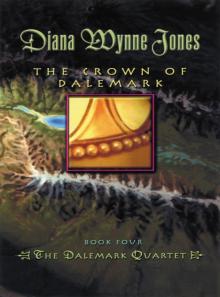 The Crown of Dalemark
The Crown of Dalemark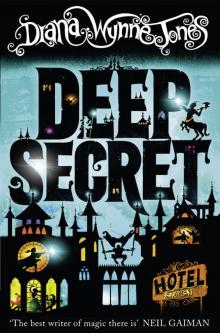 Deep Secret
Deep Secret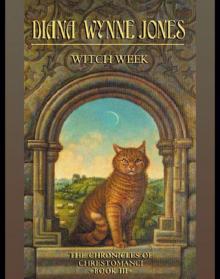 Witch Week
Witch Week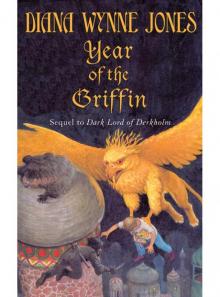 Year of the Griffin
Year of the Griffin Wild Robert
Wild Robert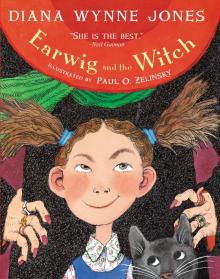 Earwig and the Witch
Earwig and the Witch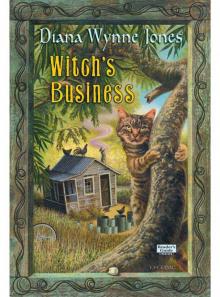 Witch's Business
Witch's Business Dogsbody
Dogsbody Caribbean Cruising
Caribbean Cruising Cart and Cwidder
Cart and Cwidder Conrad's Fate
Conrad's Fate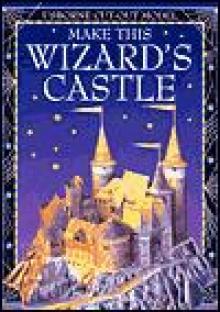 Howl's Moving Castle
Howl's Moving Castle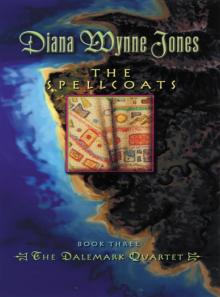 The Spellcoats
The Spellcoats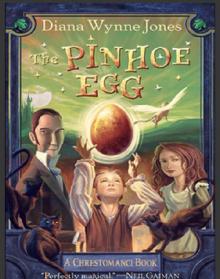 The Pinhoe Egg
The Pinhoe Egg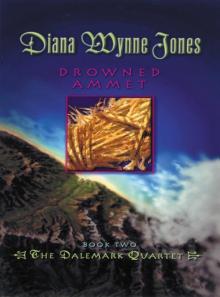 Drowned Ammet
Drowned Ammet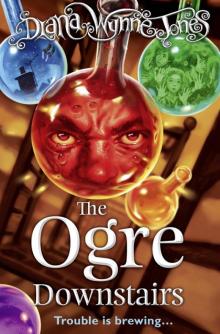 The Ogre Downstairs
The Ogre Downstairs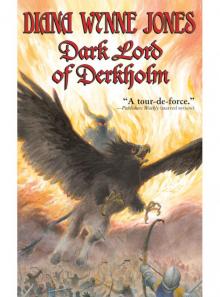 Dark Lord of Derkholm
Dark Lord of Derkholm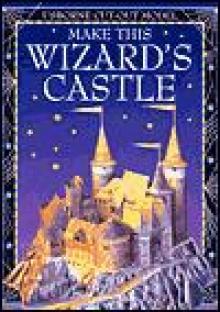 Castle in the Air
Castle in the Air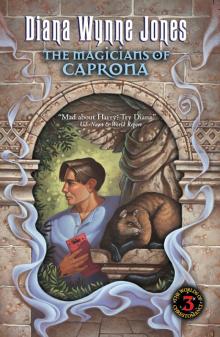 The Magicians of Caprona
The Magicians of Caprona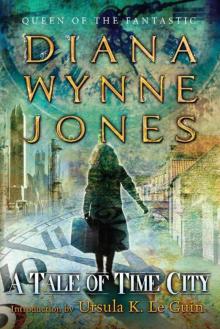 A Tale of Time City
A Tale of Time City The Lives of Christopher Chant
The Lives of Christopher Chant The Magicians of Caprona (UK)
The Magicians of Caprona (UK)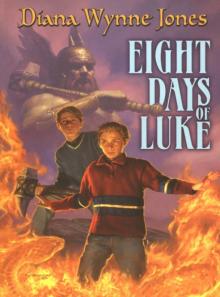 Eight Days of Luke
Eight Days of Luke Conrad's Fate (UK)
Conrad's Fate (UK)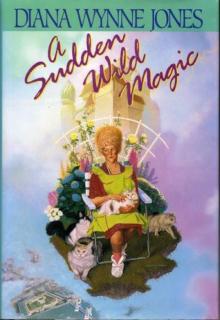 A Sudden Wild Magic
A Sudden Wild Magic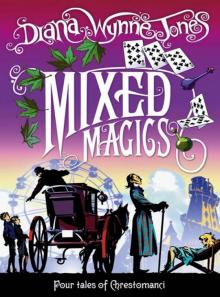 Mixed Magics (UK)
Mixed Magics (UK)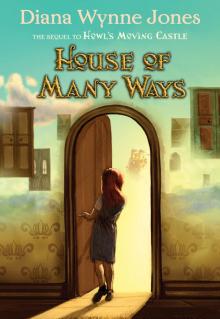 House of Many Ways
House of Many Ways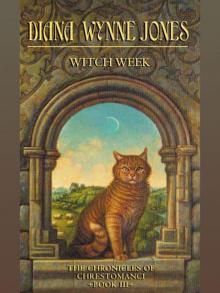 Witch Week (UK)
Witch Week (UK)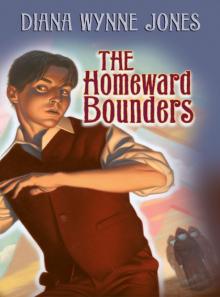 The Homeward Bounders
The Homeward Bounders The Merlin Conspiracy
The Merlin Conspiracy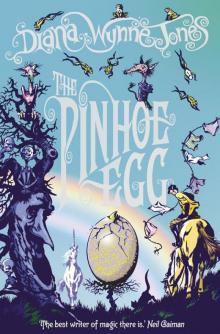 The Pinhoe Egg (UK)
The Pinhoe Egg (UK)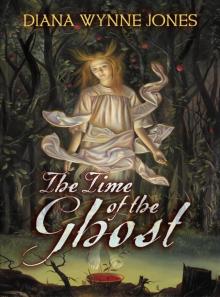 The Time of the Ghost
The Time of the Ghost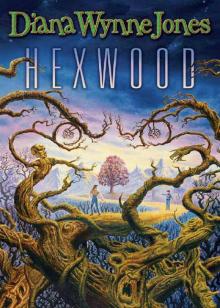 Hexwood
Hexwood Enchanted Glass
Enchanted Glass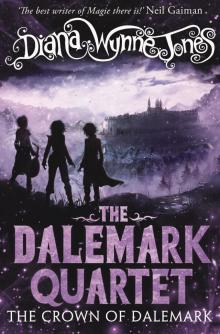 The Crown of Dalemark (UK)
The Crown of Dalemark (UK)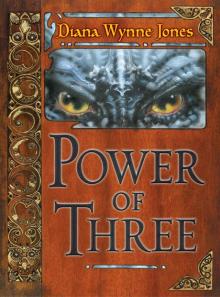 Power of Three
Power of Three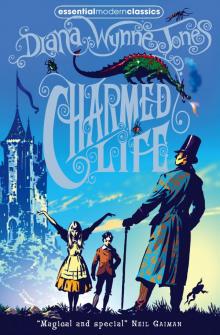 Charmed Life (UK)
Charmed Life (UK)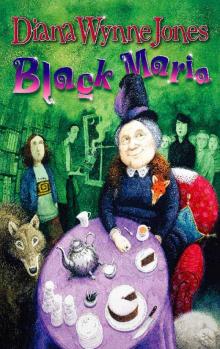 Black Maria
Black Maria The Islands of Chaldea
The Islands of Chaldea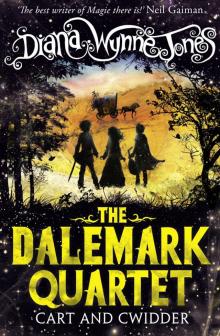 Cart and Cwidder (UK)
Cart and Cwidder (UK) Drowned Ammet (UK)
Drowned Ammet (UK) Charmed Life
Charmed Life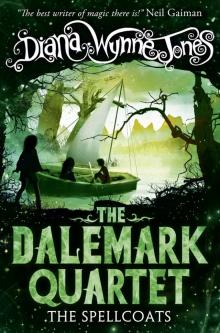 The Spellcoats (UK)
The Spellcoats (UK)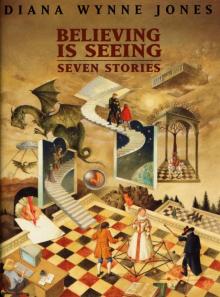 Believing Is Seeing
Believing Is Seeing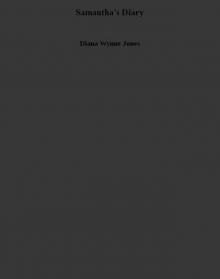 Samantha's Diary
Samantha's Diary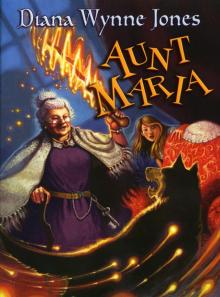 Aunt Maria
Aunt Maria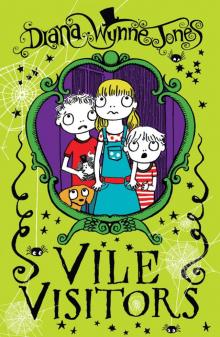 Vile Visitors
Vile Visitors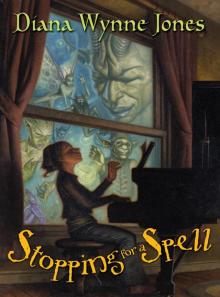 Stopping for a Spell
Stopping for a Spell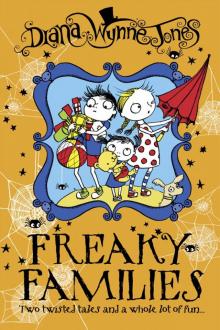 Freaky Families
Freaky Families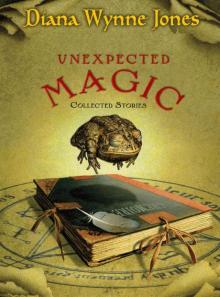 Unexpected Magic
Unexpected Magic Reflections
Reflections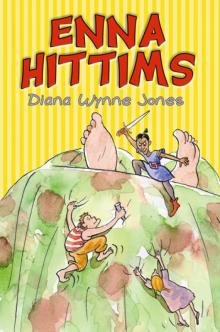 Enna Hittms
Enna Hittms Mixed Magics: Four Tales of Chrestomanci
Mixed Magics: Four Tales of Chrestomanci